The 6 Best Data Backup and Recovery Methods for Business
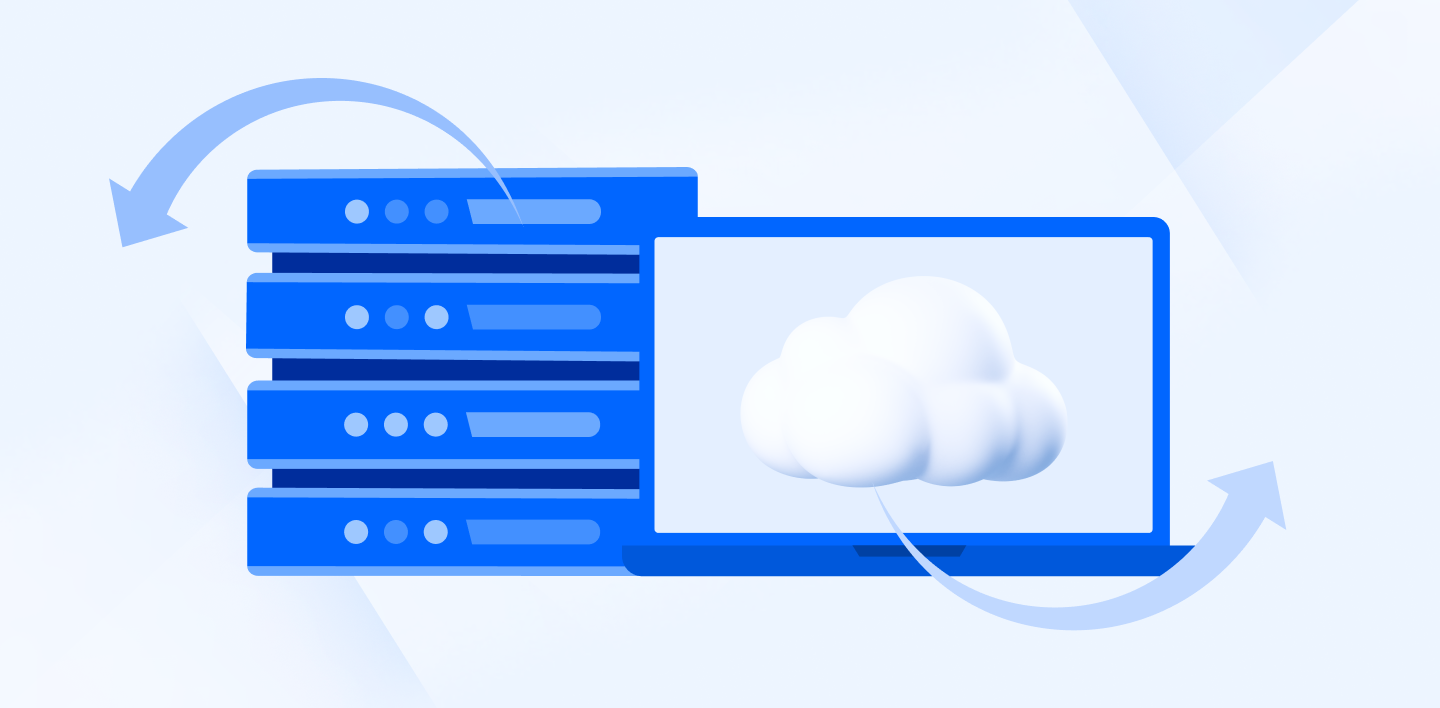
Businesses face many dangers like never before in this age of technology. In 2024 alone, ransomware's financial impact is higher than ever, with data backup and recovery costs averaging $2.74 million—nearly $1 million more than in 2023.
Ransomware also impacts company costs due to downtime, with businesses facing an average of 21 days of disruption when (and if) a ransomware attack is identified.
Therefore, it is clear that without a solid data backup and recovery system in place, businesses face losing millions, their reputation, and their customers.
To offer your business additional insurance, we will provide an overview of the best data backup and recovery methods to ensure your files are encrypted, backed up, accessible, and compliant with data protection laws.
Table of contents
What is data backup and recovery?
When you start the backup process, the provider creates a copy of your files and stores them in a separate server to protect against common data loss events such as hardware failures, cyberattackers, or accidental deletion.
Backing up your files ensures it can be recovered and restored to its original state if necessary. Furthermore, many compliance laws, such as HIPAA, GDPR, and CCPA, demand data be backed up, accessible so they can be recovered should any incidents occur.
Different types of backups
There are three main types of cloud backup: full, incremental, and differential. Each offers different benefits and use cases for personal, small or large business, or enterprise use.
Full backups
A full backup copies all your data, replicates it, and stores it in a separate location. This simpler method of data backup and recovery is more common for personal use, and cloud automation tools allow businesses to backup files efficiently and securely.
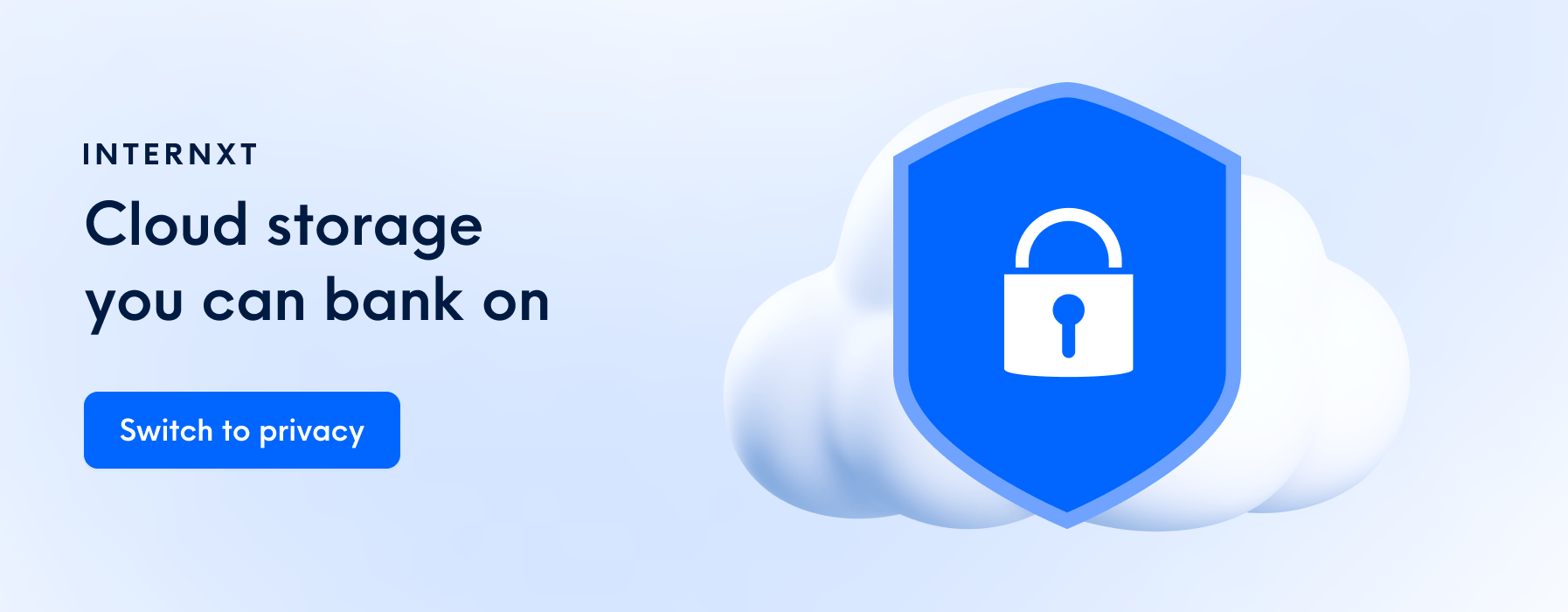
Incremental backups
Unlike a full backup, incremental backups only backup data that has changed since the most recent backup. Instead, an incremental backup will record the updates or new files, creating smaller and quicker backups.
Incremental backups, therefore, are a much more efficient and quick way to back up data for businesses, as they avoid repeating the whole backup process for all the files.
Differential backups
When you run a full backup, you can set up differential backups that store all the changes you made since the last full backup. If you make more changes later, the following differential backup will again capture all changes since the last full backup, so the storage grows bigger each time.
Differential backups offer a good balance of storage and recovery speed as you don’t need as much space as full backups, but you can recover data faster than incremental backups.
Why data backup and recovery is important
Without a well-implemented recovery or backup system, businesses and individuals are exposed to numerous issues, such as data and financial loss, cyberattacks, operational disruptions, or device failure.
In 2024, 59% of organizations reported being targeted by ransomware attacks, with 70% of these attacks resulting in essential data being locked behind encryption, demanding payments that can reach millions of dollars for its return.
Therefore, Regular backups are essential for a plan to restore data promptly, minimize downtime, and maintain business continuity, especially as cyberattacks and new technologies evolve that could potentially threaten our data.
Data backup and recovery types to protect your files
The following are the different data backup and recovery options at your disposal for personal, business, or enterprise needs.
Cloud backup
Cloud backups are one of the many pros of cloud storage and the most common data backup and recovery option for most users due to their ease of use for less tech-savvy users, secure encryption, and ease of recovery.
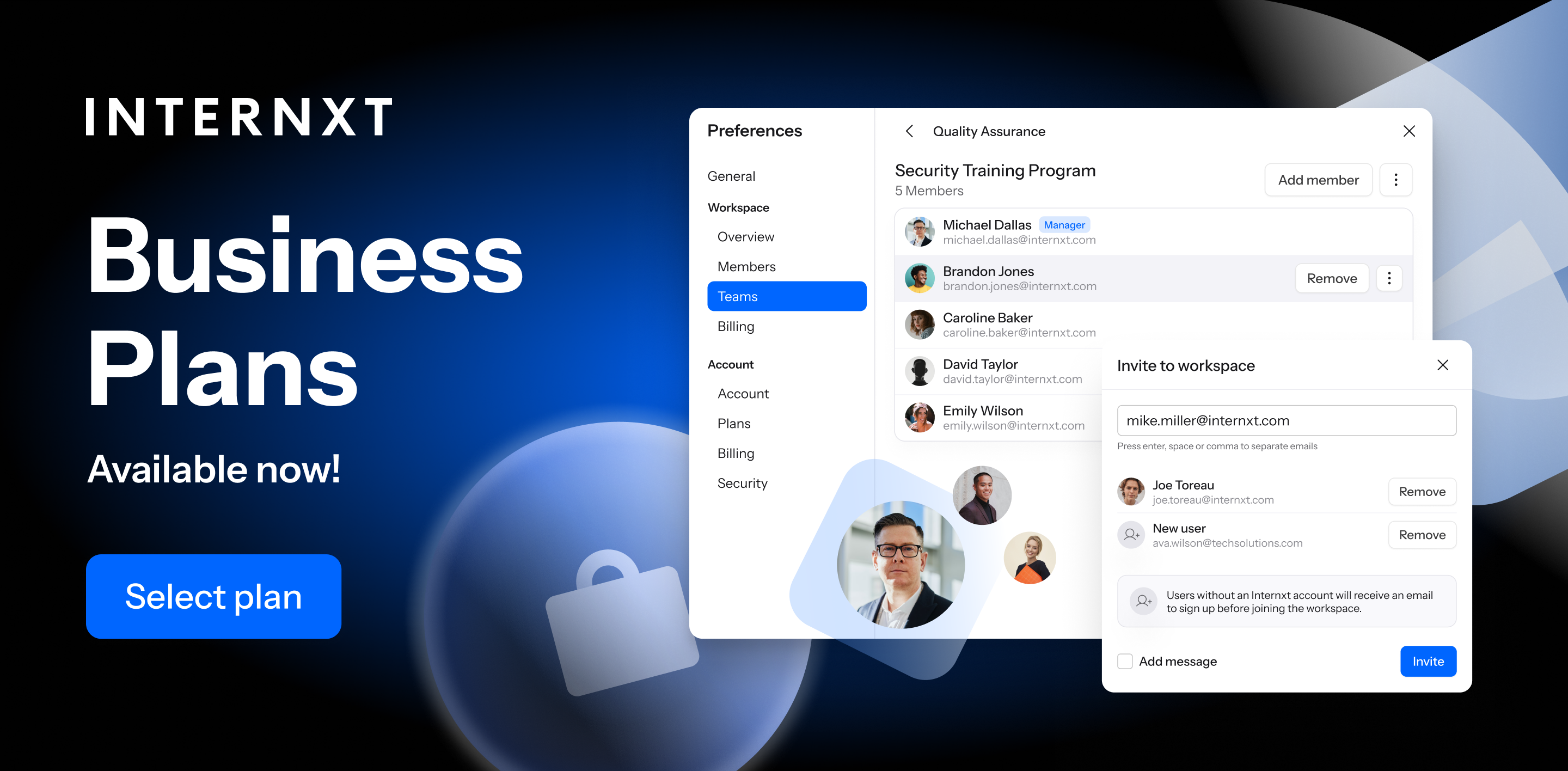
Cloud backups, like those offered by Internxt Drive, create multiple copies of your files, encrypt them, and store them across multiple servers to ensure they can be recovered and accessed when required.
This backup option is the most secure option for full backups, as Internxt uses data redundancy and zero-knowledge encryption to not only make your backups safe across multiple servers but also have peace of mind nobody, not even Internxt, can access your content, as the user is the one with the encryption keys.
For your cloud backup needs, you can subscribe to any of Internxt’s annual or lifetime plans, or get access to cloud backups for multiple users with its Family cloud storage or Business plans.
On-premise
On-premise backups give you more control over your backups as they are stored on a physical site in your organization, and backup data is stored on physical drives, such as Network Attached Storage.
Organizations in industries like healthcare, finance, or government, which deal with highly sensitive or regulated data, may prefer on-premise backups to ensure compliance and avoid sharing data with third-party providers.
On-premise backups will require more ongoing maintenance and expertise to set up; however, be certain your team has the necessary skillset to ensure it can comply with regulations and security protocols .
AWS or S3
AWS offers cloud-based data backup and recovery, with one popular option being S3 storage, which allows businesses to store and backup huge amounts of data as objects for quicker data retrieval from data lakes or warehouses.
Internxt’s S3 storage model offers object storage and backups at a cost that is up to 80% cheaper than AWS, Azure, and Google Cloud at a fixed rate of €7/TB/month, which you can scale to your needs, meaning your company could potentially get unlimited data storage at a great cost.
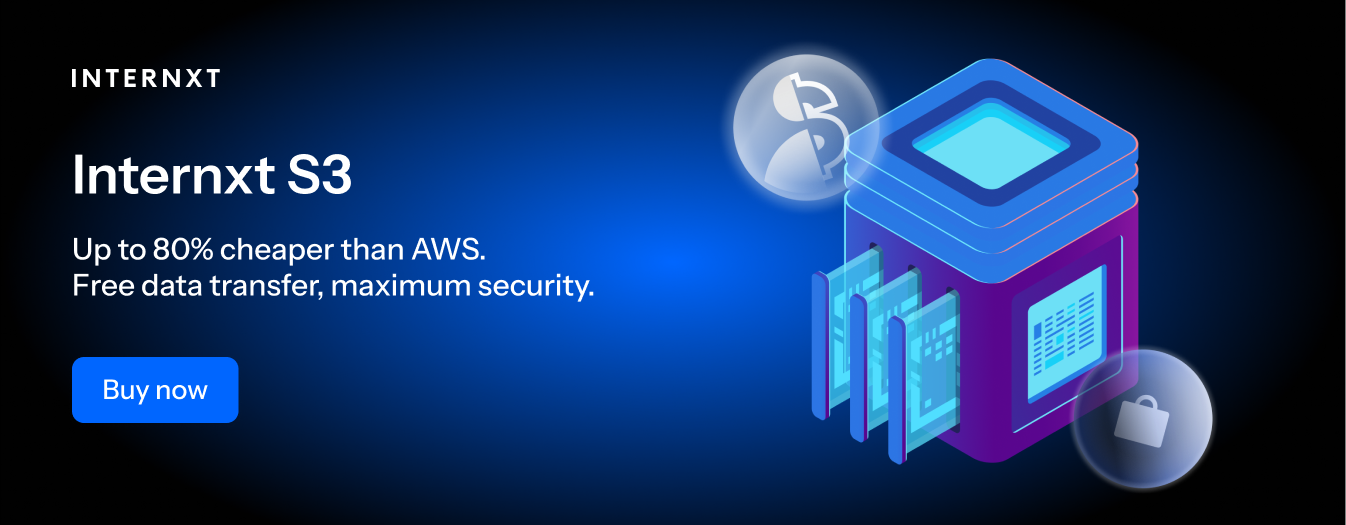
With Internxt S3 storage plans, you can schedule regular backups without manual intervention, ensuring that data is always up-to-date and protected. Furthermore, Internxt S3 includes 99.999999999% (11 9’s) availability, replicating your data across multiple locations, so even if one server fails, your backups remain intact and accessible.
To get started with S3 backup and storage, visit our website or contact us at hello@internxt.com for more information.
Immutable
Immutable backups are a powerful way to backup and protect data. When implementing immutable backups, the data cannot be altered, deleted, or modified once created, protecting it from malicious threats, accidental deletions, or user errors.
Immutable backups use write-once-read-many (WORM) protection and retention policies that lock the data once it is backed up. Once complete, nobody can alter, change, or delete the data.
As the data is protected from external threats, internal accidental deletion, or unauthorized access, immutable backups are perfect for industries such as healthcare that need to store highly sensitive information.
Immutable backups are available via Internxt S3 with the object lock feature and the ability to set retention policies, allowing businesses to define how long the backup data remains immutable.
Hybrid
Hybrid cloud storage and backups offer the best of both worlds for businesses or users who want the advantage of on-premise and cloud data backup and recovery.
Hybrid backups provide fast recovery and off-site protection as data is backed up locally for quick access. At the same time, copies are stored in the cloud for additional security and disaster recovery.
Hybrid backups are advantageous as they offer faster data retrieval, security, and scalable cloud storage for small businesses or enterprises that need to store highly confidential data on their servers for increased control, security, and accessibility to this data.
Whereas in the cloud, your business benefits from regular cloud storage to manage data that needs to be accessed remotely or shared with external parties, such as: documents, emails, or non-confidential records, which can be encrypted and stored in the cloud server.
Disaster Recovery as a Service (DRaaS)
The final option for data backup and recovery is to protect and restore your business's infrastructure, applications, data, computer, and networking to the cloud. Should an event happen that threatens any of these, DRaaS services will restore these to restore normal operations, reduce downtime, and potentially save your company millions.
The recovery process is automated, and businesses can typically restore their systems within minutes or hours rather than days, as is often the case with traditional backup methods.
Finding your perfect backup and recovery provider
Considering the right backup option will require some thought, research, and future planning to ensure your provider can continue meeting your needs as your business grows.
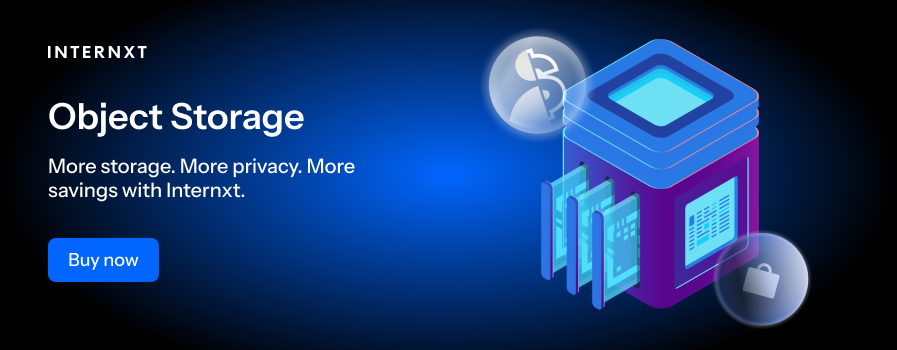
It's also important to consider your employees and teach them the best cloud data backup practices, so employee training, access controls, and account managers or admins managing the backup service must be considered to ensure the health, maintenance, and security of your backup option.
For all your data backup and recovery needs and for a fully private suite of products, Internxt Drive for business or Internxt S3 offers versatile and comprehensive backup solutions protected by the GDPR to ensure your business or enterprise can easily manage and back up any amount of data.
Visit the Internxt website today to explore all your options, and join us in building a more private storage option designed to protect businesses and their customers from data breaches and losses.

